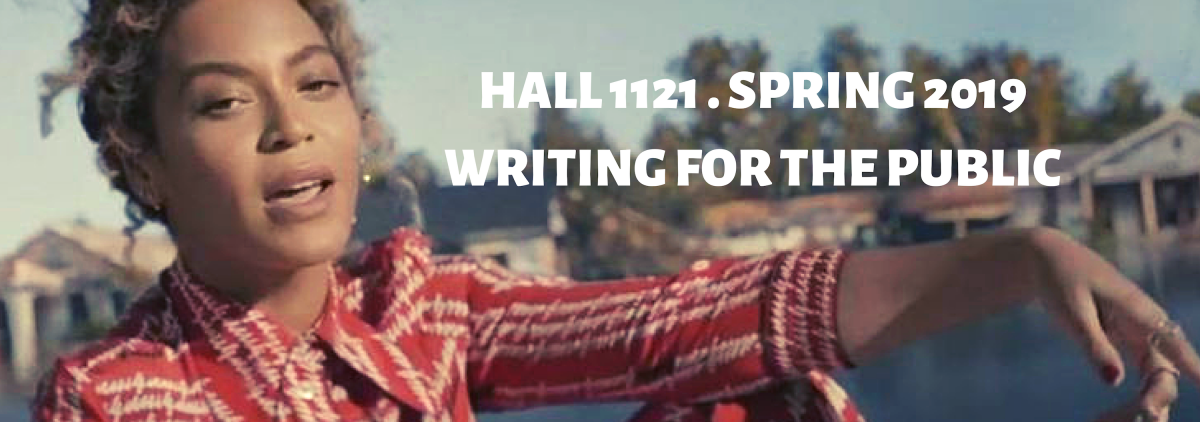Latrell Greene
Dr. Hall
ENG 1121
5/2/2019
Under Pressure
It’s Black History Month. In my school, we celebrated by having performances of poems, dancing music and speeches by both students and faculty of the school. I was one of the people performing, and I would be performing the 3 minute ragtime piece titled Maple Leaf Rag, published in 1899 by Scott Joplin, an African-American composer. What brought me to that moment was my taking the time to learn complex melodies at home with my old keyboard 61 key keyboard. Of course, with there not being enough keys, since the standard size piano is no more and no less than 88 keys, certain melodies that required a larger range of key-playing were off limits. After a while of inconsistently showing interest in playing the piano because of this, my parents finally agreed to buying a complete 88 key digital piano, fully-weighted keys and all! With access a larger range of octaves and keys, I practiced more songs, varying in genre, and became more confident in my playing.
About a year later, in my senior year of high school, even though I didn’t take a music class, I took interest in the school’s music classroom and its mechanical upright piano. Because it was the end of the day, and the room was empty, I decided to play some music on it, both to examine the way it sounded, and for fun. Thinking no one from the other room on the other side of the hallway could really hear me, or really paid attention, I played it, and though it needed to be badly tuned, the ragtime song that I played on it still worked. After finishing the song, and being unaware of any real audience, I was surprised to hear applause from the music teacher and two other teachers from neighboring rooms. The music teacher told me that she was impressed with my performance and asked me if I wanted to perform for Black History Month on her behalf, since she wasn’t going to be able to attend and hadn’t put anything together for her students. Reluctantly, I accepted, mostly because it would’ve feel wrong to just sneak into her classroom to play music, and then decline when asked to perform. But, even though I was confident in my ability to retain the songs on my own, there was still some almost irrational hesitance regarding my confidence with recalling it flawlessly in front of a large audience.
As the day approached, I got more and more nervous about the coming performance. After all, it was a 3 minute piece. 3 minutes of having to play each chord perfectly at about 150 beats per minute. Each day I practiced on my electronic keyboard, I did manage to play it flawlessly, but once in a while, because I was somehow so anxious about the performance, there was a time where I would make a mistake. I would accidentally hit the wrong key, or I would draw a blank on where my hands should go next in the middle of playing. These occurrences, although minor, would feed my fear. It was my own nervousness of having to play it flawlessly, and my fear of not messing up that fed my own nervousness, creating a sort of self-sustaining paradox. Even though I was aware of it, it was still difficult to not be paranoid about it.
Then came the moment. After about a week and a half of practicing with the goal of making sure I couldn’t possibly mess up, the moment finally arrived. Behind me and to the left of me was an auditorium teeming with around 150 students, in front of me was the auditorium’s in tune upright piano, and underneath me were the pedals to the piano, and although they didn’t work, they weren’t really needed for the song I was playing. The air in the room was really warm, but I wouldn’t know if it was really that warm, or it was my nervousness making it feel that warm. I was still nervous, and even though I practiced the song I had already mastered every day for about 10 days, the feeling in my thoughts that I might still mess it up was still present. It felt like there was still a sizable chance that I might mess up in the middle of the song and forget what came next. But telling myself that even if I did, I would try my best to get back on track helped in a way, but not too much.
When the hosts of the performances introduced me, I felt the adrenaline and pressure hit me, but instead of being overly nervous, when I played, it was almost calming knowing that my nervousness, and the adrenaline were helping me to stay sharp, and to not mess up the piece. Getting closer to the end, I started to feel more and more content with my playing, and when I finally finished, it felt like the weight of nervousness that accumulated from this performance was lifted off me, and I felt a wave of the feeling of accomplishment. From that point, I had finally learned to trust that when I’m in the moment of applying skills that I spent time learning and refining, the sense of pressure wouldn’t always impair my ability to perform, but it can enhance it. Rather than doubting my abilities under pressure, I could look forward to it helping me stay sharp in the moment that it’s there.



